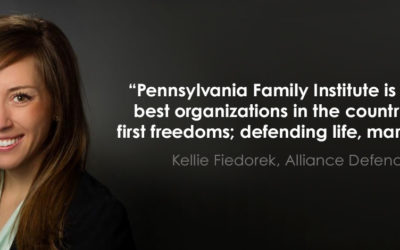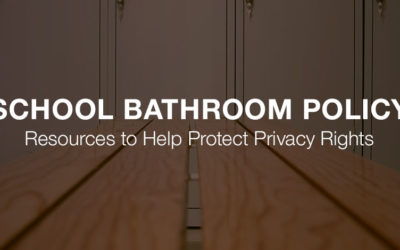Issue
Standards for Explicit Sexual Content in Schools
KEY POINTS
- School Boards are legally permitted to create policy setting standards for preventing age-inappropriate sexually explicit content in their curriculum and library.
- The standard ought not be: “As long as this book doesn’t land us in jail for giving it to a minor, the sexually explicit content is welcome in our curriculum or the school library.”
- Written policy protects students, parents, employees, and the school
and ensures better educational content will fill the finite space in curriculum and in libraries. - Schools should prioritize material that provides rich educational value over material that may provide similar value but also has age-inappropriate sexually explicit content.
- Age-Appropriate policies are not directed at viewpoint and are not banning the book from student possession. They are exercising the schools prerogative to determine what to include in its own library and curriculum.
Standards for Sexually Explicit Content in Schools
Schools must engage in line-drawing for age appropriateness of sexually explicit content in their library and curriculum. Criminal laws are one required line prohibiting schools from giving materials to minors in curriculum or library that a court deems pornographic or obscene. But what about sexually explicit content that does not rise to the extremely high bar of criminal law?
School boards are legally permitted to articulate standards that go beyond “would we land in jail for giving this book to a minor?” to prevent other age-inappropriate sexually explicit content in their curriculum and school library. Unfortunately, many schools have no policy standards for sexually explicit material beyond criminal law.
Schools with written age-appropriate standards for sexually explicit materials that differ for elementary, middle, and high schools protect students and ensures better educational content will fill the finite space in curriculum and in libraries.
But such written policies also protect the school’s staff and district from costly litigation. Even without written policy, a school librarian, principal, or school board is permitted to remove a particular title they deem age-inappropriate sexually explicit material. But with written policy standards, the school is less susceptible to baseless allegations that the title was removed for an impermissible viewpoint discriminatory reason.
School employees still have wide discretion to select and purchase books that comport with the age-appropriate standards in written policy set by the school board, and from that universe of materials, parents then have ultimate authority to make additional age-appropriate determinations for their own child and should have authority to restrict certain titles for their own child.
Individuals who desire to see sexually explicit materials in the hands of minors sometimes argue that such policies are “book bans.” Attempts at labeling common-sense school standards as “book bans” have been rejected by courts. See, C.K.-W. v. Wentzville R-IV Sch. Dist., 619 F.Supp. 3d 906, 909-910 (E.D. Mo. 2022) (“A school district does not ‘ban’ a book when, ‘through its authorized school board,’ it ‘decides not to continue possessing [a] book on its own library shelves.’”) Citing ACLU of Fla., Inc. v. Miami-Dade Cnty. Sch. Bd., 557 F.3d 1177, 1218 (11th Cir. 2009).
A parent, for example, who wants to buy sexually explicit books for their own child to read are not prevented from doing so by such school policies. School policies setting forth its own age-appropriate standards for sexually explicit content in its own curriculum and school library do not even prohibit a student from bringing their own book to school or from reading it in an appropriate time, such as study hall. But school districts do not have to put such explicit books in their own curriculum or in the school library, and such a decision by the school is not a ban on books.
Such policies treat inappropriate sexually explicit content the same regardless of whether the sexually explicit depictions or descriptions happen to be between straight, gay, or even a lone person. As such the argument made by those who desire to see sexually explicit materials in the hands of minors, that these policies are directed at LGBT people, is false.
Too many schools lack baseline standards regarding sexually explicit content in school libraries. Schools ought to spend the finite time in the day on academic excellence, and sexually explicit content detracts from that. Explicit sexual depictions and descriptions may sell, but refusal to purchase it is no ban. Districts can decide not to buy and stock sexually explicit content. If you are a school board member who desires to implement such a policy, we are glad to assist you.

Related Articles
PA Family Institute: Why We Do What We Do
Pennsylvania Family Institute is the state's leading pro-life, pro-family advocacy organization. Your partnership with us helps to advance the core issues of life, marriage and family and religious freedom throughout the Commonwealth. Click here to contribute.
Friday, October 21 – Friends of the Family Banquet
"Outstanding"..."Very encouraging"..."Refreshing"..."I'm still in awe of Friday evening!" Pennsylvania Family Institute is privileged and grateful to receive these and many other compliments from those attending our annual Friends of the Family banquet - what has...
Want a Ride to the Defend My Privacy Rally on June 27th?
Do you want to attend the Defend My Privacy Rally on Monday, June 27th at the Capitol, but you don't want to drive to Harrisburg? We have buses available from several different locations around the state: Lancaster Reading Millersburg Gibsonia Monroeville Washington,...
Temporary Victory on PA Bathroom Bills in House and Senate
IN THE SENATE: Thank you to everyone who contacted their State Senator regarding SB 1306, SB 1307 and SB 974. Because of the amount of phone calls received and the important concerns you shared with your senators, the committee vote that was scheduled for Wednesday...
Keep it Up! Contact your State Senator to Vote NO on the Bathroom Bills
GOOD WORK to those who have reached out to their State Senator regarding the Bathroom Bills (SB 1306, SB 1307, and SB 974). Phones over at the State Senate are ringing off the hook! But, the work is not over yet. Some Senators still misunderstand the implications of...
Hersheypark’s answer: Men allowed in Women’s changing areas
Hersheypark has now made it known that not only do they allow men who self-identify as female into the women's restrooms but also in women-only changing facilities as well. It recently became public knowledge that Hersheypark permits people of either biological sex to...
Hersheypark is letting men into women’s bathrooms. Tell them your concerns.
Hersheypark, Pennsylvania's well-known family-oriented theme park, has now made it known that men whom self-identify as female are permitted to use their women-only bathrooms. News outlets across the state covered over the weekend a statement made by Hersheypark that...
How PA School Boards Can Protect Privacy Rights
The Obama administration made a “directive” to public schools that they are to open up women’s locker rooms and restrooms to the opposite sex. It is not an executive order. It is not an administrative regulation. This has no force of law or legal authority behind it,...





